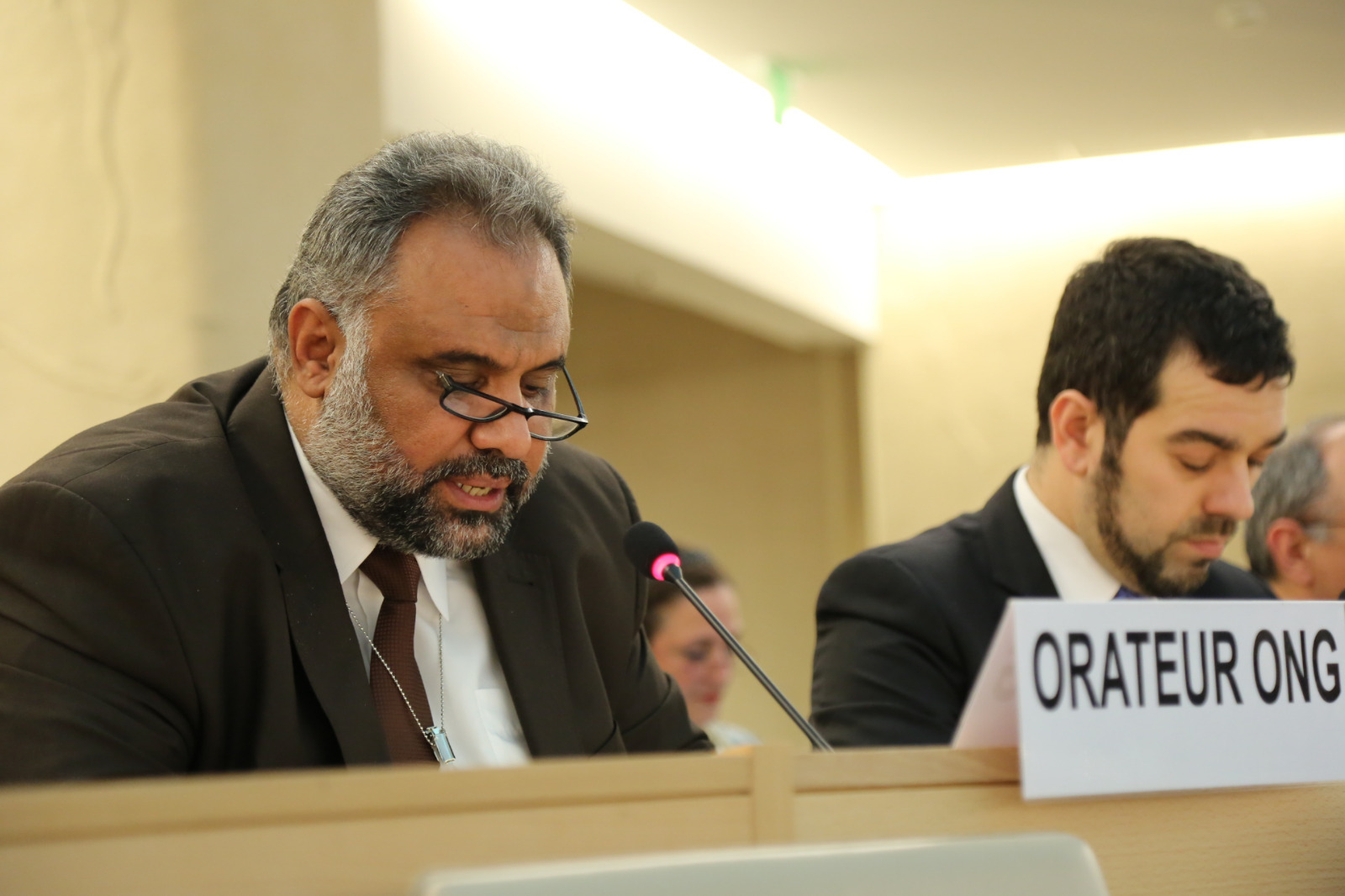On 6 March 2017, Ebrahim Demistani delivered an oral intervention at the 34th session of the Human Rights Council. He participated in the Item 3 Interactive Dialogue with the Special Rapporteur on Disabilities, delivering an oral intervention addressing the situation of persons with disabilities in Bahrain – particularly the particular challenges faces by persons with disabilities in Bahrain’s prisons. Please continue reading for full remarks or click here to download a PDF.
Mr. President,
Alsalam Foundation together with Americans for Democracy & Human Rights in Bahrain and the Bahrain Institute for Rights & Democracy would like to take this opportunity to thank Rapporteur Aguilar for her report. We appreciate her recognition that prisoners with disabilities, within an intersectionally vulnerable group, are exposed to considerable discrimination and abuse.
In this context, we are concerned with the status of prisoners with disabilities in the Kingdom of Bahrain, and emphasize the case of Dr. Abduljalil al-Singace, who is partially paralyzed in both legs and has been arbitrarily detained since 2011, despite worsening health conditions. Dr. Abduljalil al-Singace, a professor, blogger and human rights defender, was arrested on 17 March 2011 for participating in peaceful protests, and was subsequently sentenced to life in prison.
Security forces sexually abused and subjected him to severe and prolonged torture, targeting his physical disabilities, including by forcing him to stand on one foot. Authorities also consistently denied his requests for obtaining medical care that was deemed urgent to his condition.
Although Bahrain, like many States, has signed and ratified the Convention on the Rights of Persons with Disabilities, it still has not developed comprehensive legislation protecting the rights of disabled prisoners like Dr. Abduljalil Al-Singace from being denied necessary medical support. In other countries, like Saudi Arabia, persons with mental disabilities have also been executed, with trials that do not recognize the special circumstances of their disabilities. We therefore call the Council’s specific attention to violations faced by prisoners with disabilities.
Noting that prisoners with disabilities are often disregarded in policy and legislative frameworks concerning the standard minimum rules for the treatment of prisoners, we would like to ask: What steps can be taken to better address the vulnerabilities of prisoners with disabilities and ensure their access to adequate support and treatment
Thank you.





